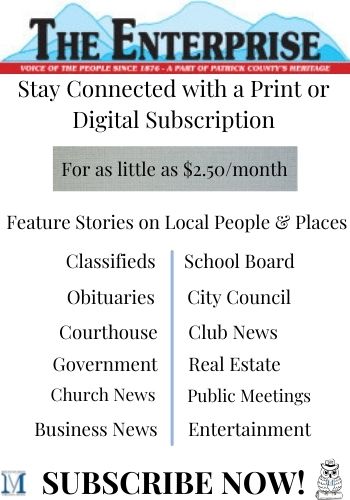 A new National Park Service (NPS) report shows that 14.1 million visitors to the Blue Ridge Parkway in 2020 spent $1.1 billion in communities near the park. That spending supported 15.5 thousand jobs in the local area and had a cumulative benefit to the local economy of $1.3 billion.
A new National Park Service (NPS) report shows that 14.1 million visitors to the Blue Ridge Parkway in 2020 spent $1.1 billion in communities near the park. That spending supported 15.5 thousand jobs in the local area and had a cumulative benefit to the local economy of $1.3 billion.
“The Blue Ridge Parkway was built in part to support the economic vitality of the region it passes through in North Carolina and Virginia. The annual visitor spending report reminds us all of the important partnership between the park and local communities along the route to provide quality visitor experiences both on and off the Parkway,” said Blue Ridge Parkway Superintendent Tracy Swartout. “Having just embarked on the 2021 visitor season, we expect another year of high visitation. We encourage visitors to plan ahead for all the Parkway and its neighboring communities have to offer.”
The peer-reviewed visitor spending analysis was conducted by economists with the NPS and the U.S. Geological Survey. The report shows $14.5 billion of direct spending by more than 237 million park visitors in communities within 60 miles of a national park. This spending supported 234,000 jobs nationally; 194,400 of those jobs are found in these gateway communities. The cumulative benefit to the U.S. economy was $28.6 billion.
Looking at the economics of visitor spending nationally, the lodging sector had the highest direct effects, with $5 billion in economic output. The restaurants sector was had the second greatest effects, with $3 billion in economic output. Visitor spending on lodging supported more than 43,100 jobs and more than 45,900 jobs in restaurants. Visitor spending in the recreation industries supported more than 18,100 jobs and spending in retail supported more than 14,300 jobs.
Report authors also produce an interactive tool that enables users to explore visitor spending, jobs, labor income, value added, and output effects by sector for national, state, and local economies. Users can also view year-by-year trend data. The interactive tool and report are available on the NPS Social Science Program page on NPS.gov
To learn more about national parks in North Carolina and Virginia and how the National Park Service works with communities to help preserve local history, conserve the environment, and provide outdoor recreation, go to www.nps.gov/nc or www.nps.gov/va.








